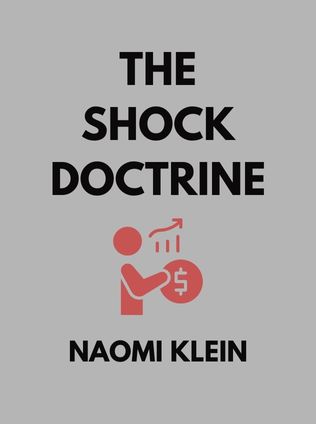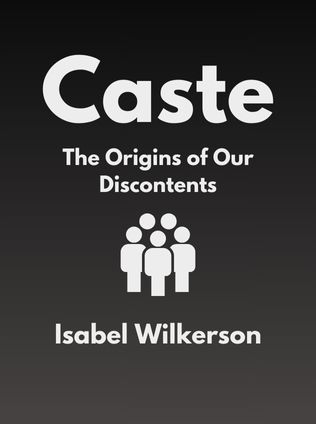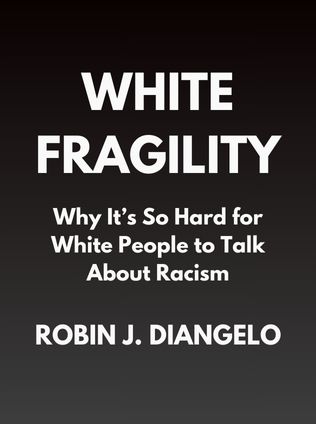
The Shock Doctrine
The Rise of Disaster Capitalism
By Naomi Klein
Published 09/2007
About the Author
Naomi Klein is a renowned journalist, author, and social activist who has made significant contributions to the discourse on economic and social justice. Born in Montreal, Canada, in 1970, Klein grew up in a politically active family, which influenced her later work. She gained widespread recognition with her first book, No Logo, which critiqued the power of multinational corporations and their influence on culture and society. Klein's writing is characterized by its rigorous research, passionate advocacy, and clear, engaging style, making complex economic and political concepts accessible to a broad audience.
Her book The Shock Doctrine, published in 2007, is a powerful indictment of what she terms "disaster capitalism," a system in which crises—natural or man-made—are exploited to push through controversial economic policies that benefit the wealthy and powerful at the expense of the general population. Klein's work is heavily influenced by her understanding of history, economics, and the dynamics of power, and she has become a leading voice in the global movement for economic justice.
Main Idea
The Shock Doctrine presents the idea that powerful interests exploit crises—whether they are wars, natural disasters, or economic collapses—to impose neoliberal economic policies that would otherwise be politically impossible. These policies, which include privatization, deregulation, and severe cuts to social spending, often lead to widespread suffering and inequality. Klein argues that this "shock doctrine" is not a byproduct of neoliberalism but is central to its success. She meticulously traces the history of these practices from their origins in the University of Chicago's Economics Department under Milton Friedman to their implementation in countries around the world.
Table of Contents
- Introduction: Blank Is Beautiful: Three Decades of Erasing and Remaking the World
- Part One: Two Doctor Shocks—Psychic Driving, Interrogation, and Torture
- Part Two: The First Test—Economic Shock Therapy in Chile
- Part Three: Surviving Democracy—Disaster Capitalism in Britain and the United States
- Part Four: Lost in Transition—The Selling of Eastern Europe and South Africa
- Part Five: Shocking Times—Natural Disasters and the Rise of the Disaster Capitalism Complex
- Part Six: Iraq, Full Circle—The Tyranny of the Clean Slate
- Conclusion: Shock Wears Off—The Rise of People's Reconstruction
Introduction: Blank Is Beautiful—Three Decades of Erasing and Remaking the World
The book opens with the idea that neoliberal economists, particularly those influenced by Milton Friedman, have long sought to create "blank slates" on which to build their ideal societies. This concept is likened to the psychological treatment known as shock therapy, where patients' memories and personalities are effectively erased, leaving a blank slate on which new, supposedly healthier patterns can be imposed. Klein argues that this approach has been applied to entire nations, with disastrous results.
"Only a crisis—actual or perceived—produces real change. When that crisis occurs, the actions that are taken depend on the ideas that are lying around." - Milton Friedman
Klein explains that crises provide the perfect opportunity to impose radical changes because populations are too disoriented and distracted to resist effectively. This "shock doctrine" is not an unfortunate side effect of neoliberalism but is instead a deliberate strategy. The book explores how this approach has been applied in various contexts, from Latin America to Eastern Europe, and most notoriously in Iraq.
Part One: Two Doctor Shocks—Psychic Driving, Interrogation, and Torture
Klein begins her exploration with a chilling comparison between the psychological torture techniques developed in the 1950s and the economic policies promoted by Milton Friedman. The former involved the use of electroshock therapy to erase patients' memories, leaving them as blank slates. Similarly, Friedman and his followers believed that the best way to implement their radical free-market policies was to first dismantle existing structures—whether through war, coups, or economic collapse.
Sign up for FREE and get access to 1,400+ books summaries.
You May Also Like
Rich Dad Poor Dad
What the Rich Teach Their Kids About Money - That the Poor and Middle Class Do Not!
By Robert T. KiyosakiFreakonomics
A Rogue Economist Explores the Hidden Side of Everything
By Steven D. Levitt and Stephen J. DubnerI Am Malala
The Story of the Girl Who Stood Up for Education and Was Shot by the Taliban
By Malala YousafzaiFactfulness
Ten Reasons We're Wrong About the World – and Why Things Are Better Than You Think
By Hans Rosling



















